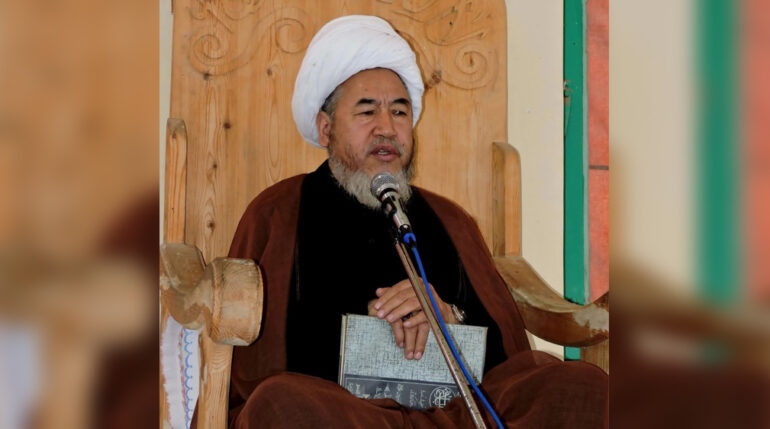RASC News Agency: In a stark illustration of the Taliban’s deepening hostility toward Afghanistan’s Shia minority, Ayatollah Mohammad Hashem Waezzada Behsudi, one of the most prominent Shia clerics in the country, has announced that Taliban forces have forcibly sealed his seminary and representative office in Kabul’s Dasht-e-Barchi district. This area, a historical stronghold of the Hazara and Shia community, has long been subjected to discrimination, targeted violence, and systemic repression. According to Ayatollah Waezzada, Taliban operatives arrived at his office late yesterday, padlocked the building, and expelled all instructors, students, and staff without any legal warrant or transparent explanation. He condemned the raid as an unlawful and sectarian act, carried out “on the basis of false, unverified, and maliciously interpreted reports.”
Waezzada further revealed that this was not an isolated incident. Just a week earlier, Taliban security units from Kabul’s 18th Police District, accompanied by officials from the so-called Taliban Ministry of Justice, had stormed and shut down his charitable foundation in Dasht-e-Barchi. Four employees were arrested during that raid and were only released after the allegations against them proved baseless. The cleric directly accused a figure identified as Haji Amin, along with a “self-appointed board of trustees” of the Mahdaviya Mosque and Seminary in western Kabul, of orchestrating these conspiracies and fueling Taliban hostility against his institutions.
In a dramatic response, Ayatollah Waezzada announced his resignation as the legitimate custodian of the Mahdaviya Mosque and Seminary, issuing a bold religious decree that prayers held in the mosque under these conditions are “religiously invalid and void.” His declaration is widely seen as both a spiritual protest and a direct challenge to Taliban interference in religious affairs. The cleric also declared that he would not appeal to the Taliban’s Ministry of Justice for the reopening of his office, remarking:
“Let my representative office remain closed, while the offices of other clerics stay open.”
This statement underscores his defiance of the Taliban’s discriminatory governance and his refusal to legitimize their authority.
Over the past two years, Ayatollah Waezzada has been one of the most vocal critics of the Taliban’s oppressive policies particularly their ban on girls’ education, arbitrary detentions of Shia scholars, and systematic attempts to erase independent Shia voices. He has openly denounced Taliban leader Hibatullah Akhundzada’s refusal to engage with Shia clerics, warning:
“The existence and rights of ten million Shia Muslims in Afghanistan cannot simply be ignored.” The closure of Waezzada’s seminary and office is widely viewed as part of a larger Taliban campaign to suppress Afghanistan’s religious diversity and consolidate power through intimidation. In recent years, Dasht-e-Barchi has witnessed dozens of attacks on Shia schools, mosques, and public gatherings, with survivors accusing the Taliban not only of failing to protect the community but also of turning a blind eye or worse, tolerating such atrocities.
This latest crackdown underscores the regime’s sectarian agenda and has deepened fear among Hazara and Shia communities, who see the Taliban’s actions as an effort to systematically erase their cultural and religious identity. For many, Waezzada’s defiance serves as a rare and courageous voice against a regime determined to impose silence through repression.






